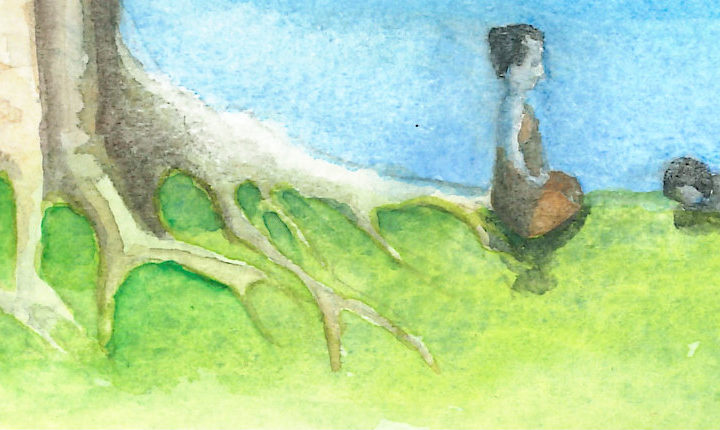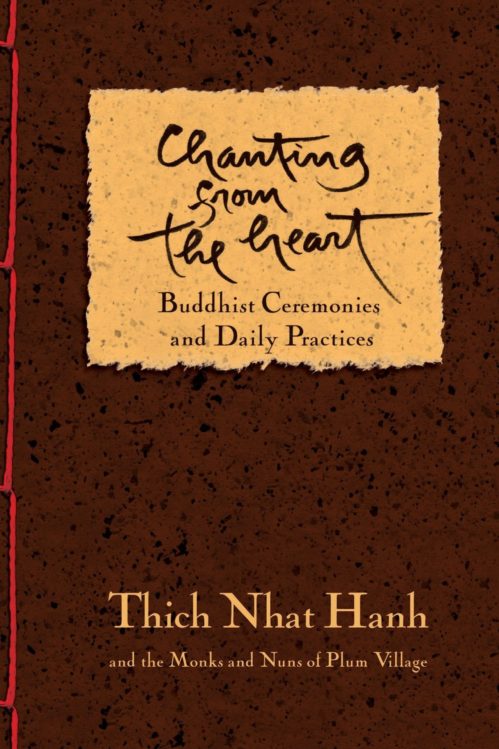Wholeheartedly, day and night, disciples of the Awakened One should recite and meditate on the Eight Realizations discovered by the Great Beings.
The First Realization is the awareness that the world is impermanent. Political regimes are subject to fall. Things composed of the four elements are empty, containing within them the seeds of suffering. Human beings are composed of Five Aggregates and are without a separate self. They are always in the process of change – constantly being born and constantly dying. They are empty of self and without a separate existence. The mind is the source of all confusion, and the body the forest of all unwholesome actions. Meditating on this, you can be released from the round of birth and death.
The Second Realization is the awareness that more desire brings more suffering. All hardships in daily life arise from greed and desire. Those with little desire and ambition are able to relax, their body and mind free from entanglement.
The Third Realization is the awareness that the human mind is always searching outside itself and never feels fulfilled. This brings about unwholesome activity. Bodhisattvas, on the other hand, know the value of having few desires. They live simply and peacefully, so they can devote themselves to practicing the Way. They regard the realization of perfect understanding to be their only career.
The Fourth Realization is the awareness that indolence is an obstacle to practice. You must practice diligently to transform unwholesome mental states that bind you, and you must conquer the four kinds of Mara in order to free yourself from the prisons of the Five Aggregates and the three worlds.
The Fifth Realization is the awareness that ignorance is the cause of the endless round of birth and death. Bodhisattvas always listen to and learn from others so their understanding and skillful means can develop, and so they can teach living beings and bring them great joy.
The Sixth Realization is the awareness that poverty creates hatred and anger, which creates a vicious cycle of negative thoughts and actions. When practicing generosity, bodhisattvas consider everyone – friends and enemies alike – to be equal. They do not condemn anyone’s past wrongdoings or hate even those presently causing harm.
The Seventh Realization is the awareness that the five categories of sensual desire – money, sex, fame, overeating, and oversleeping – lead to problems. Although you are in the world, try not to be caught in worldly matters. A monk, for example, has in his possession only three robes and one bowl. He lives simply in order to practice the Way. His precepts keep him free of attachment to worldly things, and he treats everyone equally and with compassion.
The Eighth Realization is the awareness that the fire of birth and death is raging, causing endless suffering everywhere. Take the Great Vow to help all beings, to suffer with all beings, and to guide all beings to the Realm of Great Joy.
These Eight Realizations are the discoveries of great beings, Buddhas and Bodhisattvas who have practiced diligently the way of understanding and love. They have sailed the Dharmakaya boat to the shore of nirvana, and have then returned to the ordinary world, free of the five sensual desires, their minds and hearts directed toward the Noble Way. Using these Eight Realizations, they help all beings recognize the suffering in the world.
If disciples of the Buddha recite and meditate on these Eight Realizations, they will put an end to countless misunderstandings and difficulties and progress toward enlightenment, leaving behind the world of birth and death, dwelling forever in peace.
This translation has been prepared by Thich Nhat Hanh from the Chinese Taishō Revised Tripiṭaka 779.







Join the conversation